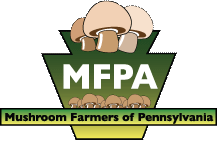
Environmental Importance l Nutritional Importance l Farm Profile l ACRE
Agriculture, Communities and the Rural Environment
ACT 38 of 2005
• Act 38 (formerly House Bill 1646, also known as ACRE or Agriculture, Communities and the Rural Environment) creates a process for farmers to seek judicial review of ordinances believed to be restrictive of normal agricultural operations. Farmers will have the ability to request the Pennsylvania Attorney General to review an ordinance restricting agriculture that the farmer believes to be illegal.
• Only farmers are entitled to have their township agricultural ordinance reviewed by the Attorney General.
• The Attorney General is given authority to bring legal actions in Commonwealth Court to challenge and prevent the enactment or enforcement of ordinances that the Attorney General finds to be in conflict with state law.
• The Attorney General is required to review an ordinance and make a decision on whether the Attorney General’s Office will bring a legal action to challenge the ordinance within 120 days. The Attorney General’s Office will be required to notify the farmer of the Attorney General’s decision (whether he will challenge the ordinance in Commonwealth Court or not).
• The Pennsylvania Secretary of Agriculture and the Dean of the College of Agricultural Sciences at Penn State will provide expert consultation regarding the nature of normal farming operations and practices in the Commonwealth.
• The scope of ordinances subject to review by the Attorney General includes any ordinance enacted before the bill’s effective date, as well as ordinances enacted after that date, that would restrict normal agricultural operations or restrict the business structure of the farm operation.
• Farmers may go to court regardless of whether or not the Attorney General takes action. Farmers who bring legal actions against a township that has passed an ordinance which the farmer feels is in violation of state law will be entitled to bring the action in Commonwealth Court, allowing them to bypass the Court of Common Pleas.
• Decisions made on the ordinance by Commonwealth Court will establish statewide legal precedent.
• Commonwealth Court will have the authority to appoint hearing “masters” to conduct hearings and administer the legal action in a timely and more economical fashion.
• Commonwealth Court has the discretion in awarding attorney fees to a farmer who successfully challenges the legality of a local ordinance if the farmer is able to show the township “negligently disregarded” the legality of the ordinance when it was enacted. Likewise, the Court may award attorney fees to a township that successfully defends a legal challenge of its ordinance, if the township can show the lawsuit by the farmer was “frivolous” in nature.
• Best management practices for control of odor will be required of concentrated animal feeding operations (CAFO) and concentrated animal operations (CAO) when they expand existing structures or construct new structures housing animals or storing manure.
• Concentrated animal feeding operations (CAFO) and concentrated animal operations (CAO) will be prohibited from spreading animal manure within 100 feet of streams, lakes and ponds, or within 35 feet of streams, lakes and ponds if the farm establishes a qualified vegetative buffer next to the waterway. Farmers can still perform many farming practices in the buffer areas. This section of the Act shall take affect in 180 days after signature of the legislation by the Governor.
July 2005

